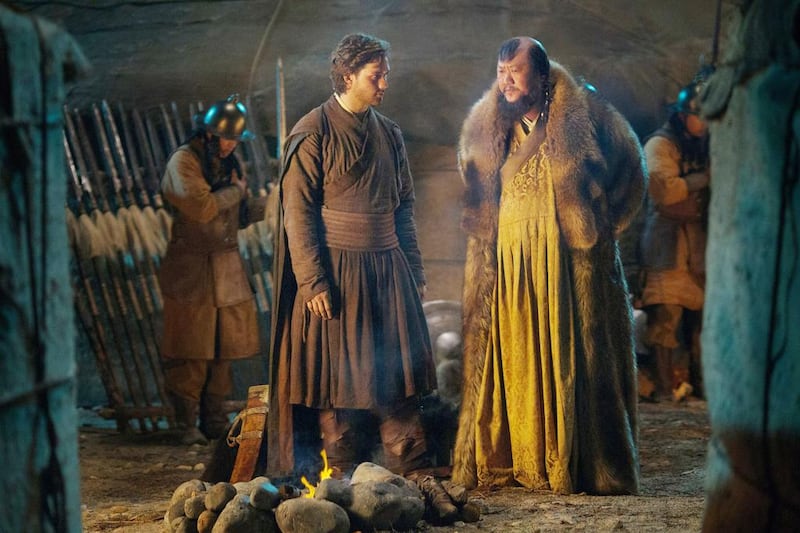ULAN BATOR // The big-budget American series “Marco Polo”, on the 13th-century Venetian explorer and his years at the court of the Mongol emperor Kublai Khan, is riddled with historical errors.
US movie distributor Netflix has spent tens of millions of dollars on the show, touted as its answer to HBO’s huge hit Game of Thrones.
However, Mongolian historians say much of the plot plays fast and loose with the facts.
With swashbuckling swordfights, mass battles, intricate costumes and palace plots, the series portrays conflicts and rebellions in the Mongol empire under Kublai Khan, as seen through Marco Polo’s eyes.
Kublai, the grandson of the great Mongol conqueror Genghis Khan, was a phenomenal warrior himself, reigning from 1260 to 1294, subjugating swathes of China and establishing the Yuan dynasty of Chinese emperors.
Mongolian viewers were excited to see one of their own being cast as Kublai’s brother Ariq Boke, despite the leading roles going to Chinese actors or those of Chinese descent.
But Batsukh Otgonsereenen, who spent 10 years researching his book The History of Kublai Khan, said: "From a historical standpoint 20 per cent of the film was actual history and 80 per cent fiction."
The fate of Ariq Boke, who briefly took power following the death of their father but lost the subsequent civil war, was particularly twisted, he said.
“The part where Kublai and Ariq Boke fight to a bloody death in front of their soldiers is completely untrue,” he said.
“Yes, Ariq did try to seize the throne, but in history Kublai and Ariq resolve their issues.”
Netflix described the series – shot in Kazakhstan, Malaysia and Italy, rather than Mongolia or China – as set in a world “replete with exotic martial arts, political skullduggery, spectacular battles and sexual intrigue”.
But Mr Otgonsereenen said the creators’ research on Kublai seemed “very sloppy”.
“I think they tried to show Mongolian history like Game of Thrones with conspiracy, betrayal, blood and sex,” he said.
“Mongolian youth who watch this series might get the wrong impression of Kublai Khan being quite cruel and perverted.”
Polo was a Venetian merchant who spent more than two decades in central Asia and China with his father and uncle, serving for years as Kublai’s minister and envoy.
He was not the first European to travel to Asia but became by far the most famous, and his descriptions of the Far East are said to have inspired Christopher Columbus to attempt to travel there himself, only to discover the Americas instead.
But US critics panned the show, with news site vox.com’s reviewer writing: “Is it worth watching? Eh, not really, no.”
The series, released last month, has a 30 per cent rating on review aggregator rottentomatoes.com, which describes it as “an all-round disappointment”.
Nonetheless a second season has been commissioned.
Some Mongolian viewers praise the series, and many welcome the space it gives their remote country on the global small screen.
Orgil Narangerel, who played Genghis Khan in a BBC documentary, said it was more accurate than any previous foreign portrayal of Mongolian culture.
“As a Mongol and an artist, ‘Marco Polo’ makes me feel like our dreams are coming true,” he said. “I watched all 10 episodes in just in one day.”
* Agence France-Presse





